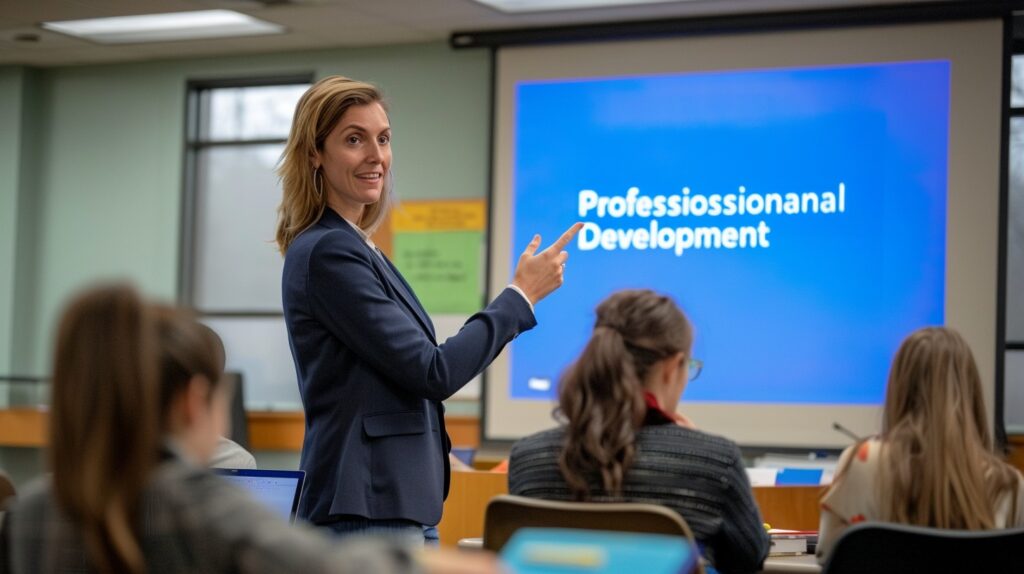Introduction
Lifelong learning Lifelong and continuous acquisition of knowledge. It includes formal, formal and informal learning experiences with computers for impersonal and experiential development. In today’s rapidly changing world, lifelong learning is essential to compete, adapt, and question.
The power of lifelong learning

- Intellectual Development: Expanding knowledge and horizons, developing creativity, and increasing self-esteem.
- Career Advancement: Acquiring new skills and updated record with industry trends.
- Former Engagement: Building connections, participating in teams, and contributing to teams.
- Active Form: Developing critical thinking and problem solving for informed decision making.
- Wellbeing: Strengthens mental health, reduces cognitive decline, and promotes overall well-being.
Benefits of lifelong learning
- Employability Enhancement: Get updated with industry trends and acquire new skills.
- Increased Earning Potential: Upskilling and reskilling progress and reward higher salaries.
- Improved quality of life: New knowledge and skills contribute to personal and well-being.
- Activity: Developing critical thinking and problem solving skills promotes informed decision making.
- Stronger Social Connections: Engaging in learning endeavors builds and expands networks.
Table: Opportunities for lifelong learning
| Type of learning Examples |
|—|—|
| Formal | Universities, Colleges, Vocational Schools |
| Informal | Online Courses, Workshops, Seminars |
| Informal | Volunteering, hobbies, travel, reading
Frequently Asked Questions About Lifelong Learning
*How do I start lifelong learning?

- Identify your passions, decide goals for learning, and make resources accessible to you.
*Is Life Expensive? - Free and low-cost learning resources are available, such as online courses and local libraries.
*How can I balance lifelong learning with work and family? - Time management and realistic goal setting are essential.
- What are the life benefits of learning for older adults?
- Lifelong learning can help reduce cognitive decline, social support, and quality of life.
How can technology support lifelong learning? - Online platforms, mobile apps, and resources offer easy and accessible access opportunities.
Result
Lifelong learning is a continuous and developmental journey. By learning new skills and opening up to opportunities, individuals can develop their personal and professional lives to advance, contribute to the field, and live a comfortable life. In today’s fast-paced world, lifelong change is not just an option, but a necessity.

Would you like to focus on a particular aspect of lifelong learning, such as lifelong learning for people who care, continuing education, or the role of government in promoting lifelong learning?
Lifelong Learning: A Journey of Continuous Development
Introduction
Lifelong learning Lifelong and continuous acquisition of knowledge. It includes formal, formal and informal learning experiences with computers for impersonal and experiential development. In today’s rapidly changing world, lifelong learning is essential to compete, adapt, and question.
The power of lifelong learning
- Intellectual Development: Expanding knowledge and horizons, developing creativity, and increasing self-esteem.
- Career Advancement: Acquiring new skills and updated record with industry trends.
- Former Engagement: Building connections, participating in teams, and contributing to teams.
- Active Form: Developing critical thinking and problem solving for informed decision making.
- Wellbeing: Strengthens mental health, reduces cognitive decline, and promotes overall well-being.
Benefits of lifelong learning
- Employability Enhancement: Get updated with industry trends and acquire new skills.
- Increased Earning Potential: Upskilling and reskilling progress and reward higher salaries.
- Improved quality of life: New knowledge and skills contribute to personal and well-being.
- Activity: Developing critical thinking and problem solving skills promotes informed decision making.
- Stronger Social Connections: Engaging in learning endeavors builds and expands networks.
Table: Opportunities for lifelong learning
| Type of learning Examples |
|—|—|
| Formal | Universities, Colleges, Vocational Schools |
| Informal | Online Courses, Workshops, Seminars |
| Informal | Volunteering, hobbies, travel, reading
Frequently Asked Questions About Lifelong Learning
*How do I start lifelong learning?
- Identify your passions, decide goals for learning, and make resources accessible to you.
*Is Life Expensive? - Free and low-cost learning resources are available, such as online courses and local libraries.
*How can I balance lifelong learning with work and family? - Time management and realistic goal setting are essential.
- What are the life benefits of learning for older adults?
- Lifelong learning can help reduce cognitive decline, social support, and quality of life.
How can technology support lifelong learning? - Online platforms, mobile apps, and resources offer easy and accessible access opportunities.
Result

Lifelong learning is a continuous and developmental journey. By learning new skills and opening up to opportunities, individuals can develop their personal and professional lives to advance, contribute to the field, and live a comfortable life. In today’s fast-paced world, lifelong change is not just an option, but a necessity.
Would you like to focus on a particular aspect of lifelong learning, such as lifelong learning for people who care, continuing education, or the role of government in promoting lifelong learning?